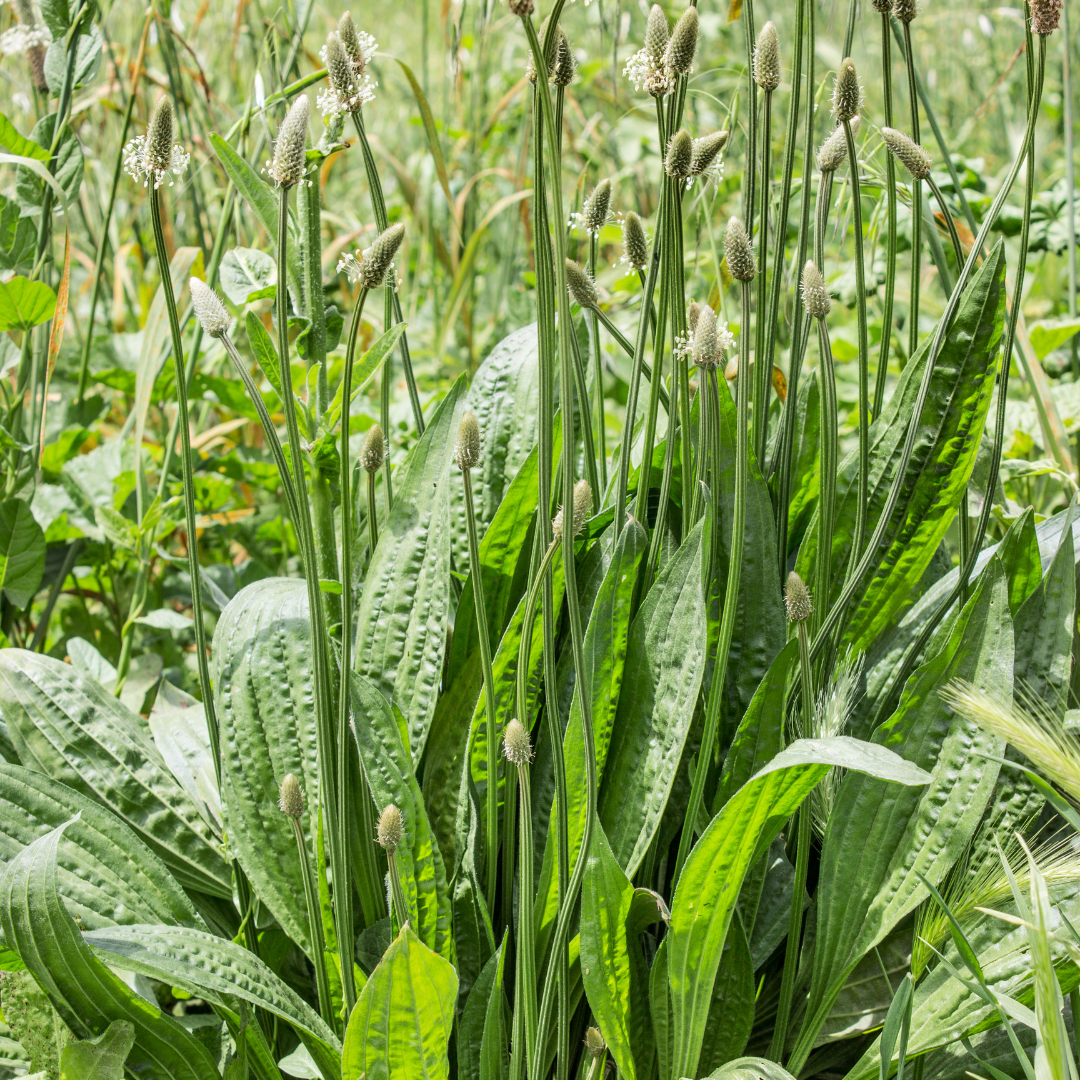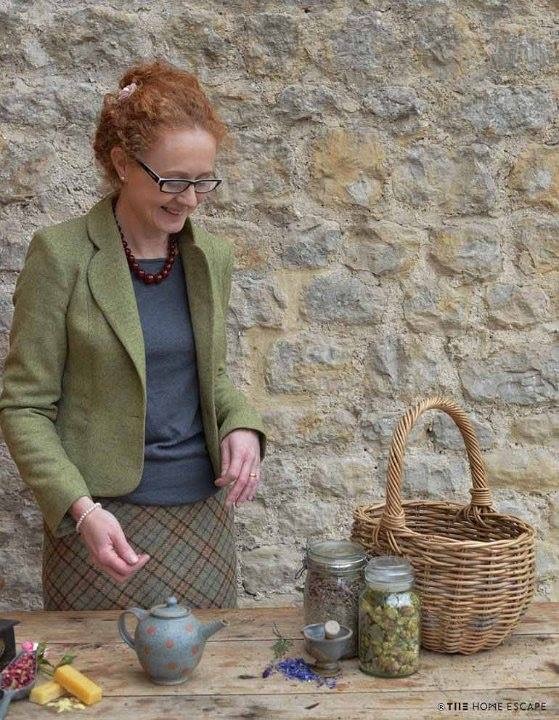Plantain
- Whole Health Agriculture Learning Centre
- Materia Medica - Plants & Herbs
Latin Name: Plantago major (broadleaf plantain), Plantago lanceolata (narrowleaf plantain)
Chemical Constituents:
Mucilage (polysaccharides), Iridoid glycosides (aucubin), Flavonoids (luteolin, apigenin), Tannins, Phenolic acids, Vitamins (particularly vitamin C), Minerals (including calcium, magnesium),
Botanical Description:
Plantago spp., commonly known as plantain, encompass several species of perennial herbaceous plants belonging to the Plantaginaceae family. Two of the most widely recognized species are Plantago major (broadleaf plantain) and Plantago lanceolata (narrowleaf plantain). Both species are native to Europe but have naturalized in many parts of the world. They have basal rosettes of leaves with distinctive parallel veins and inconspicuous flowers arranged in dense spikes. Broadleaf plantain (P. major) has broad, oval-shaped leaves, while narrowleaf plantain (P. lanceolata) has narrower, lanceolate leaves.
Traditional Uses:
Plantain has a long history of use in traditional herbal medicine, dating back centuries.
It is primarily known for its demulcent, astringent, and anti-inflammatory properties, making it a valuable remedy for skin conditions, wounds, and respiratory ailments.
Plantain preparations are used topically to soothe and heal skin irritations, cuts, burns, insect bites, and stings.
It is also used internally to relieve respiratory congestion, coughs, sore throats, and gastrointestinal issues such as diarrhea and gastritis.

Researched Uses:
Research on plantain has confirmed its traditional uses and therapeutic properties.
Plantain contains mucilage, a complex mixture of polysaccharides that forms a soothing gel when mixed with water. This mucilaginous substance coats and protects irritated tissues, reducing inflammation and promoting healing.
Studies suggest that plantain may have antimicrobial, antioxidant, and wound-healing properties, which contribute to its effectiveness in treating skin conditions and promoting wound healing.
Plantain has demonstrated potential in relieving respiratory symptoms such as coughs, sore throats, and bronchitis, likely due to its expectorant and anti-inflammatory effects.
Internal Uses:
Plantain preparations are typically consumed internally as teas, infusions, tinctures, or capsules.
Plantain tea is made by steeping dried plantain leaves in hot water for 10–15 minutes, then strained and consumed.
It is commonly used to relieve respiratory congestion, coughs, sore throats, gastrointestinal issues, and urinary tract infections.
External Uses:
Plantain can also be used externally in the form of poultices, compresses, ointments, or washes.
Plantain poultices are made by crushing fresh or dried plantain leaves and applying them directly to the affected area to soothe and heal skin irritations, cuts, burns, insect bites, and stings.
Uses for Livestock:
Plantain may have limited use in veterinary medicine for treating skin conditions and gastrointestinal issues in livestock.
Plantain preparations may be administered orally or used topically to alleviate symptoms of diarrhea, gastritis, skin irritations, and wounds in animals.
Uses for People:
For people, plantain is primarily used as a natural remedy for skin conditions, wounds, respiratory ailments, and gastrointestinal issues.
Plantain preparations are consumed internally or used externally to relieve respiratory congestion, coughs, sore throats, gastrointestinal discomfort, and skin irritations.
It is also used as a nutritious edible green in salads, soups, and other culinary dishes.
Conclusion:
Plantago spp., or plantain, is a versatile herb with a long history of traditional use and potential therapeutic benefits. Its demulcent, astringent, and anti-inflammatory properties make it a valuable natural remedy for promoting health and relieving various ailments. Whether consumed internally as teas or used externally in herbal preparations, plantain offers a gentle and effective approach to supporting health for both people and animals

Kate Scott, aka The Drover's Daughter, has over 25 years experience in farming and is a qualified Medical Herbalist with a special interest in native British plants for ruminant health. Kate comes from a long line of sheep farmers and drovers and is passionate about teaching farmers how to boost health and immunity through the power of herbs and medicinal plants. With her husband she runs a farm consultancy service and also sells bath and beauty products online using botanicals and milk from her own flock.
Follow Kate on Facebook.
Further Information:
Visit the WHAg Learning Hub for a range of webinars on herbs and medicinal plants by Kate and other farm health experts.
To get access to a range of downloads and information on herbs and other natural methods and products become a free member.